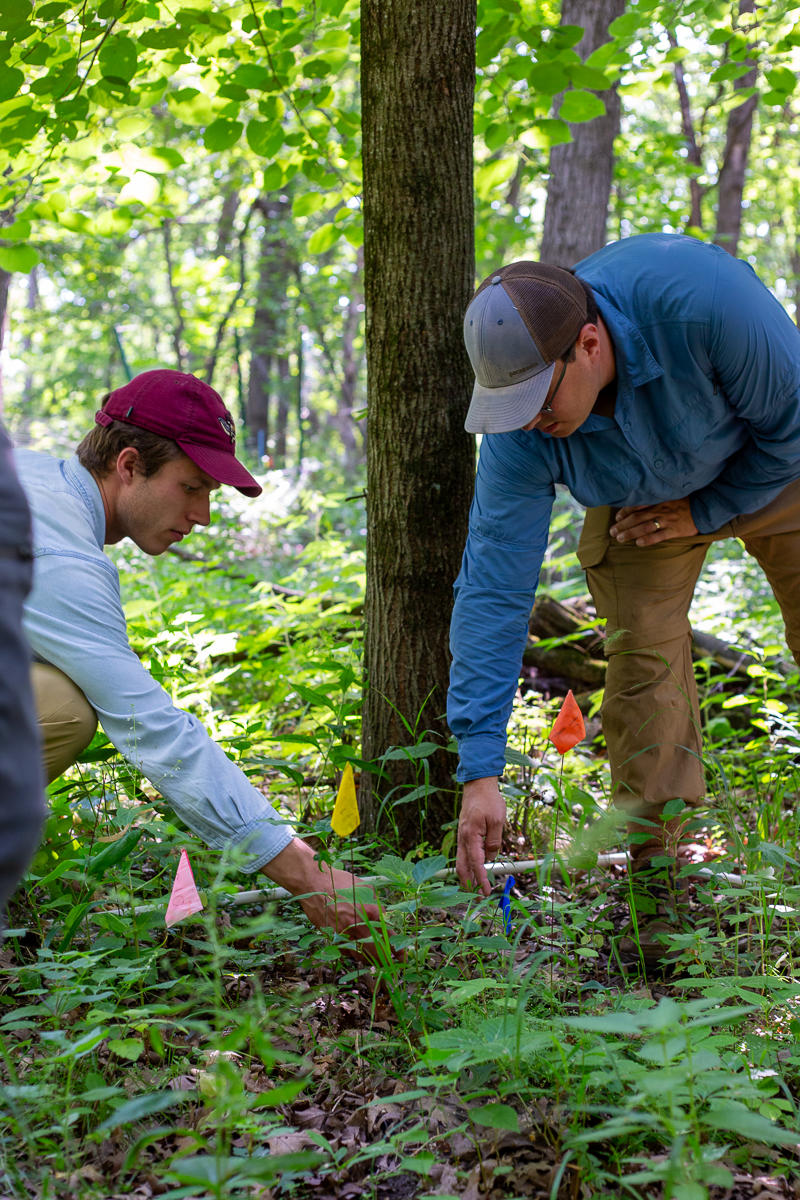The Minnesota Invasive Terrestrial Plants and Pests Center (MITPPC) identifies and funds research that aims to protect Minnesota's natural and agricultural resources.
For research to be funded, it must directly address:
- One or more high-priority invasive terrestrial species;
- AND one or more priority research themes.
2024 Request for proposals
The application for 2024 request for proposals (RFP) is now closed. See the timeline below for more details.
We anticipate a new request for proposals in January 2025.
Who is eligible
To be eligible for funding as a principal investigator (PI), proposers must:
- Be faculty, staff, or postdoc at the University of Minnesota (statewide);
- Have the authority to serve as PI;
- Have identified one or more implementation partners (i.e. representatives of organizations who are likely to use results of the project.).
Proposers must identify a faculty member to be a co-PI. Faculty who agree to serve as co-PIs must certify that they are willing and able to assume leadership of the project if the PI leaves the University.
We encourage cross-disciplinary and cross-sector collaborations with academic, local, state, federal and tribal governments, and private institutions. Proposals that are conducted on Native reservations must demonstrate appropriate consultation with the pertinent tribal government.
Available funding
Up to $3.75 million dollars is available for new proposals. We are releasing the 2024 request for proposals before the formal passage of legislative funding in support of the program. Legislative action may affect the availability or level of funding available.
Please be aware of the following:
- The maximum request for a pre-proposal is $150,000 per year for up to 4 years.
- Proposals for continued projects are not guaranteed funding.
- Funding may be used to support graduate students and postdocs.
- Capital requests are not eligible for funding.
- Funds may not be transferred to any cooperating institution outside of the University of Minnesota other than through professional and technical contracts.
How to apply
The MITPPC RFP is open January 1 to April 30, 2024 for projects starting in January 2025.
The pre-proposal requires an abstract, a problem statement, methods, the impact on management, academic references, budget, and project personnel. For academic references, please refer to the MITPPC academic citation guidelines (PDF).
Staff are available to answer questions or review a draft before you submit a pre-proposal. Email Rob Venette ([email protected]) and Heather Koop ([email protected]).
Estimated timeline
| Date range (2024) | Item |
|---|---|
| January to April | Open call for pre-proposals via the grant application portal |
| April 30 | Deadline to submit a pre-proposal |
| May to June | MITPPC conducts internal reviews of pre-proposals and requests full proposals |
| July to October | MITPPC requests external reviews of full proposals |
| November | Final decisions about funding |
| January 1, 2025 | Projects begin |
| May 15, 2030 | Projects end |
Proposal review process
When submitting a request for proposal, there is a pre-proposal and full proposal stage and both are peer-reviewed. The evaluations are critical to the funding decisions.
We ask evaluators to include the following in their proposal assessments:
- Funding priorities: Responds to research priorities for MITPPC outlined in the RFP.
- Multiple benefits: Delivers multiple benefits to Minnesota’s environment and natural resources.
- Outcomes: Identifies clear objectives likely to result in measurable, demonstrated, and meaningful outcomes that have clear relevance to invasive terrestrial species management in Minnesota.
- Innovation: Employs or demonstrates innovative approaches to more effectively and efficiently solve specific environment and natural resources issues.
- Partnerships: Leverages collaborative partnerships and additional efforts, resources, and non-state funds.
Contact
For questions about the grant application process, contact Heather Koop ([email protected]).
For science or research-related questions, contact Rob Venette ([email protected]).
Funding provided by
This request for proposals is made possible by funding from the Environment and Natural Resource Trust Fund, as recommended by the Legislative-Citizen Commission on Minnesota Resources (LCCMR).
